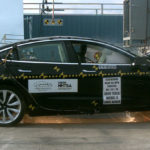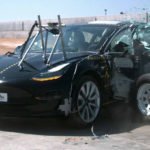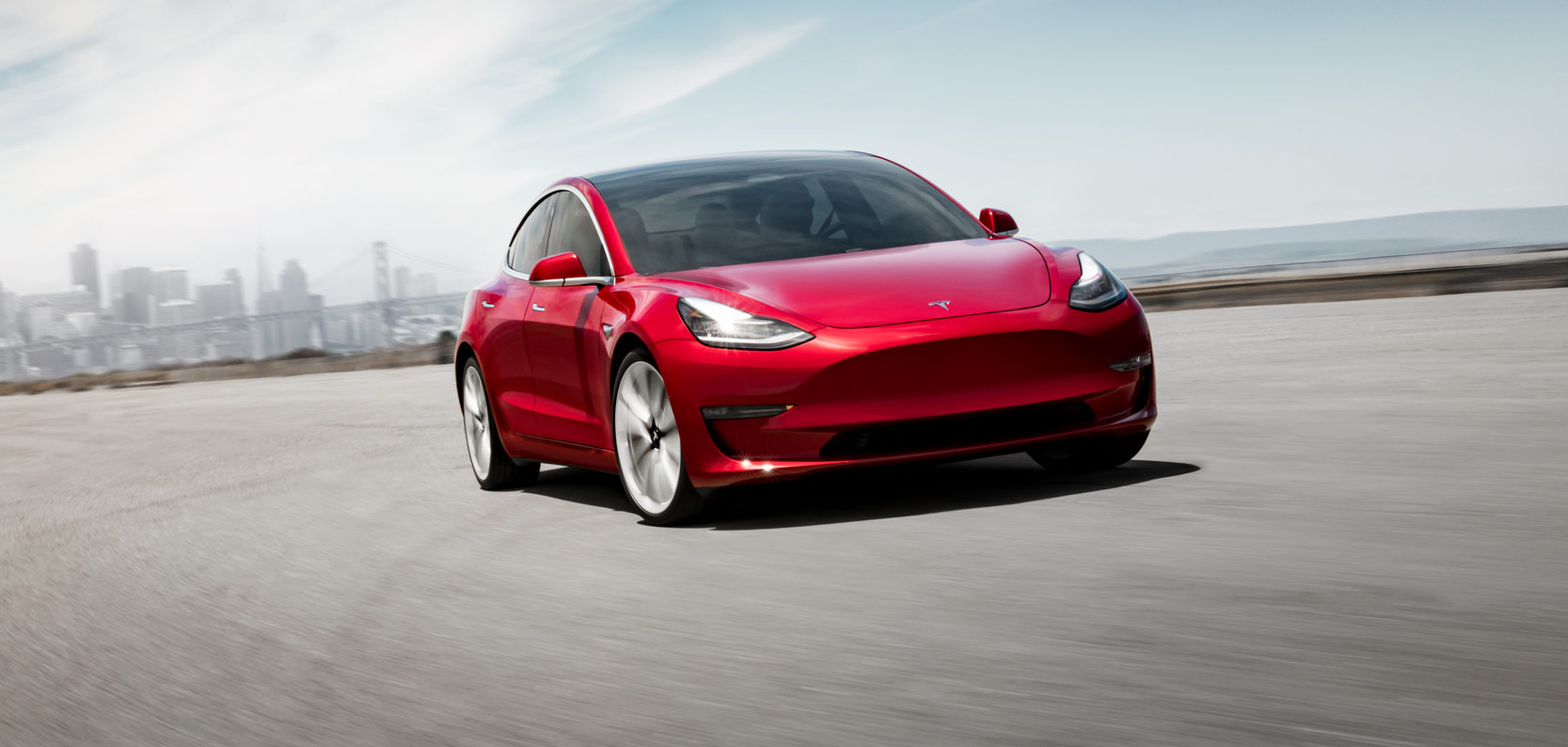
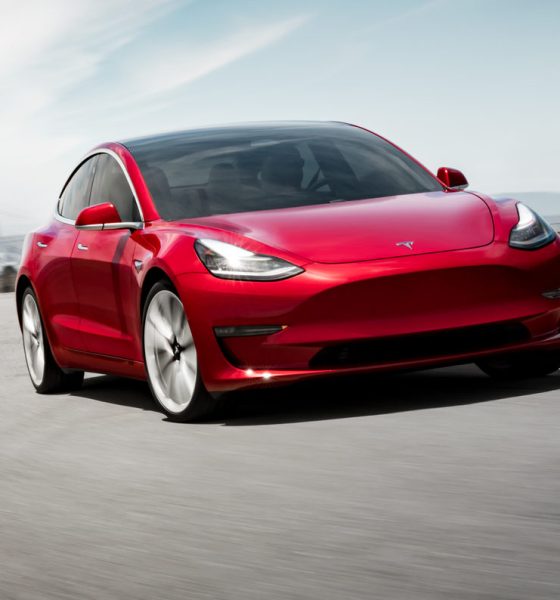
Investor's Corner
Sorry Jim Chanos, but the Tesla Model 3 is definitely not ‘looking to be a lemon’
A lot of Tesla’s immediate future is tied to the Model 3. Elon Musk said as much in an interview last July, when he accurately described the Model 3 ramp as a “bet-the-company” situation. This means that if the Model 3 proves a success, Tesla could take a definitive step towards Elon Musk’s Master Plan; but if the vehicle fails, it would be catastrophic for the company.
The Model 3’s failure is something that Jim Chanos, arguably the most high-profile of Tesla’s short-sellers, is looking forward to. Chanos has taken an aggressive stance against the electric car company, never hesitating to express his belief that TSLA stock is worth $0. Over the years, the prominent short-seller has frequently attacked the electric car maker, pointing out Elon Musk’s alleged fraudulent activities and Tesla’s weaknesses as a company.
So far, Chanos’ bet against Tesla has not been paying off. His hedge fund, Kynikos Capital Partners, has not done very well since 2015, a time in which he held a short position against Solar City, and not long before he announced that he was shorting Tesla. Including a 9% loss through July of this year, Kynikos exhibited a net annualized return of 4.86% since 2015, compared with the S&P 500’s return of 12.17% during the same period.
Considering the high-stakes bet that Tesla took with the Model 3, the success of the electric car is something that would not do any favors for Kynikos’ already-embattled year. Chanos, for his part, noted in a recent interview with Institutional Investor that he still likes his odds on Tesla. He does, for one, believe that Elon Musk “handcuffed” himself by promising profitability during the second-half of 2018. He also believes that there are inherent problems with the Model 3, as shown in its production slowdowns in August and alleged issues with the vehicle.
“It’s looking to be a lemon,” Chanos said.
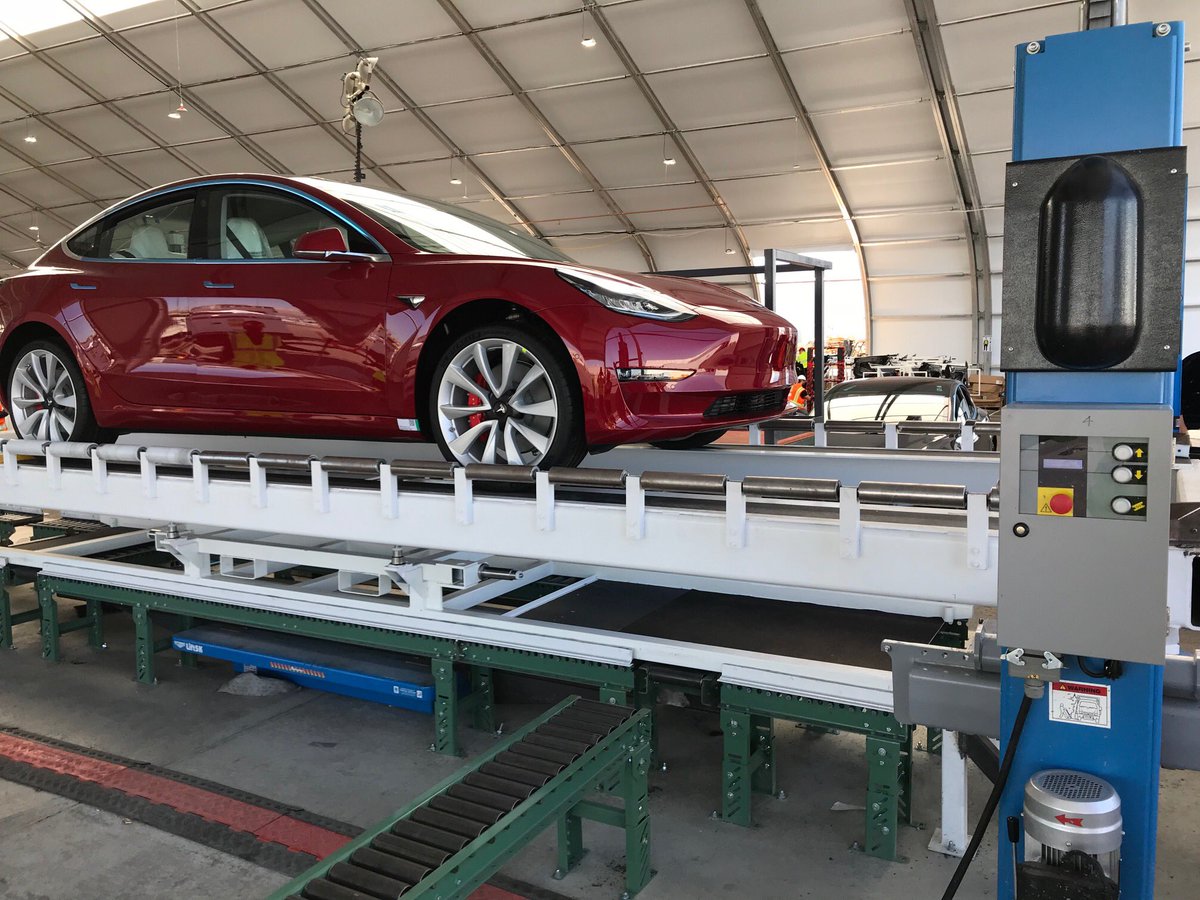
As the third quarter draws to a close, the prominent short-seller’s thesis against Tesla would be put to the test. The electric car maker, after all, has set aggressive targets for itself this Q3, aiming to build 50,000-55,000 Model 3 during the quarter while attaining profitability. Whether Tesla could accomplish its ambitious objectives remains to be seen, but there is one thing that is starting to become evident — the Model 3 does not seem to be a lemon at all.
The electric car’s production issues are well-known, and the teething problems that Tesla exhibited in the vehicle’s initial run were evident, as shown by the first observations of teardown specialist Sandy Munro when he started tearing down an early-production Model 3. But even Sandy Munro eventually admitted that behind the inconsistent panel gaps and imperfect fit and finish issues of the early production Model 3 he tested, he was thoroughly impressed with Tesla’s battery technology, electronics, performance, and ride quality. Tesla’s fit and finish on the Model 3 has improved since the car that Munro tested rolled off the assembly line, and the vehicle has only gotten more praise since then.
The electric car, particularly the Model 3 Performance, has practically garnered unanimous praise from professional auto reviewers. Various auto journalists, from the Wall Street Journal to Car & Driver to Road & Track (to name a few), have praised the vehicle, with the consensus being that it is a car that can disrupt the high-performance sedan market dominated by longtime legends such as the BMW M3.
- The Tesla Model 3 gets crash tested by the National Highway Traffic Safety Administration. [Credit: NHTSA]
- The Tesla Model 3 gets crash tested by the National Highway Traffic Safety Administration. [Credit: NHTSA]
- The Tesla Model 3 gets crash tested by the National Highway Traffic Safety Administration. [Credit: NHTSA]
The Tesla Model 3 gets crash tested by the National Highway Traffic Safety Administration. [Credit: NHTSA]
The Model 3 was given a flawless 5-Star safety rating by the Highway Traffic Safety Administration as well, garnering perfect scores in all categories and subcategories. Videos of the vehicle’s frontal crash, side crash, and rollover crash depicted the electric sedan providing ample protection for its driver and passengers during collisions. With the Model 3’s rating, all of Tesla’s vehicles currently in production now have the distinction of having 5-Star safety ratings from the NHTSA.
Recent reports from the Tesla community in both the United States and abroad also indicate that the company has adopted an aggressive delivery schedule for reservation holders, with centers reportedly conducting handovers until 10 p.m. Other reports further suggest that Tesla’s delivery centers are handing over up to 100 cars per day.
Tesla’s capability to become profitable is linked to the Model 3, which would comprise the majority of its sales this quarter. A vote of confidence for this came in the form of analyses from a German teardown firm and Detroit’s Munro and Associates, both of which concluded that Tesla could make a profit with the Model 3. Munro, for one, noted after his teardown of the Long Range RWD Model 3 that the vehicle could give Tesla a 36% profit. More expensive trims, such as the Long Range Model 3 AWD and the Model 3 Performance, are likely even more profitable.
The third quarter is not yet finished, and much of Tesla’s production and delivery progress remains unknown. But all things considered, Jim Chanos’ bet against the Model 3 as a vehicle could very well end up being a disappointment for the esteemed short-seller.

Investor's Corner
Tesla gets tip of the hat from major Wall Street firm on self-driving prowess
“Tesla is at the forefront of autonomous driving, supported by a camera-only approach that is technically harder but much cheaper than the multi-sensor systems widely used in the industry. This strategy should allow Tesla to scale more profitably compared to Robotaxi competitors, helped by a growing data engine from its existing fleet,” BoA wrote.

Tesla received a tip of the hat from major Wall Street firm Bank of America on Wednesday, as it reinitiated coverage on Tesla shares with a bullish stance that comes with a ‘Buy’ rating and a $460 price target.
In a new note that marks a sharp reversal from its neutral position earlier in 2025, the bank declared Tesla’s Full Self-Driving (FSD) technology the “leading consumer autonomy solution.”
Analysts highlighted Tesla’s camera-only architecture, known as Tesla Vision, as a strategic masterstroke. While technically more challenging than the multi-sensor setups favored by rivals, the vision-based approach is dramatically cheaper to produce and maintain.
This cost edge, combined with Tesla’s rapidly expanding real-world data engine, positions the company to scale robotaxis far more profitably than competitors, BofA argues in the new note:
“Tesla is at the forefront of autonomous driving, supported by a camera-only approach that is technically harder but much cheaper than the multi-sensor systems widely used in the industry. This strategy should allow Tesla to scale more profitably compared to Robotaxi competitors, helped by a growing data engine from its existing fleet.”
The bank now attributes roughly 52% of Tesla’s total valuation to its Robotaxi ambitions. It also flagged meaningful upside from the Optimus humanoid robot program and the fast-growing energy storage business, suggesting the auto segment’s recent headwinds, including expired incentives, are being eclipsed by these higher-margin opportunities.
Tesla’s own data underscores exactly why Wall Street is waking up to FSD’s potential. According to Tesla’s official safety reporting page, the FSD Supervised fleet has now surpassed 8.4 billion cumulative miles driven.
Tesla FSD (Supervised) fleet passes 8.4 billion cumulative miles
That total ballooned from just 6 million miles in 2021 to 80 million in 2022, 670 million in 2023, 2.25 billion in 2024, and a staggering 4.25 billion in 2025 alone. In the first 50 days of 2026, owners added another 1 billion miles — averaging more than 20 million miles per day.
This avalanche of real-world, camera-captured footage, much of it on complex city streets, gives Tesla an unmatched training dataset. Every mile feeds its neural networks, accelerating improvement cycles that lidar-dependent rivals simply cannot match at scale.
Tesla owners themselves will tell you the suite gets better with every release, bringing new features and improvements to its self-driving project.
The $460 target implies roughly 15 percent upside from recent trading levels around $400. While regulatory and safety hurdles remain, BofA’s endorsement signals growing institutional conviction that Tesla’s data advantage is not hype; it’s a tangible moat already delivering billions of miles of proof.
Elon Musk
SpaceX IPO could push Elon Musk’s net worth past $1 trillion: Polymarket
The estimates were shared by the official Polymarket Money account on social media platform X.

Recent projections have outlined how a potential $1.75 trillion SpaceX IPO could generate historic returns for early investors. The projections suggest the offering would not only become the largest IPO in history but could also result in unprecedented windfalls for some of the company’s key investors.
The estimates were shared by the official Polymarket Money account on social media platform X.
As noted in a Polymarket Money analysis, Elon Musk invested $100 million into SpaceX in 2002 and currently owns approximately 42% of the company. At a $1.75 trillion valuation following SpaceX’s potential $1.75 trillion IPO, that stake would be worth roughly $735 billion.
Such a figure would dramatically expand Musk’s net worth. When combined with his holdings in Tesla Inc. and other ventures, a public debut at that level could position him as the world’s first trillionaire, depending on market conditions at the time of listing.
The Bloomberg Billionaires Index currently lists Elon Musk with a net worth of $666 billion, though a notable portion of this is tied to his TSLA stock. Tesla currently holds a market cap of $1.51 trillion, and Elon Musk’s currently holds about 13% to 15% of the company’s outstanding common stock.
Founders Fund, co-founded by Peter Thiel, invested $20 million in SpaceX in 2008. Polymarket Money estimates the firm owns between 1.5% and 3% of the private space company. At a $1.75 trillion valuation, that range would translate to approximately $26.25 billion to $52.5 billion in value.
That return would represent one of the most significant venture capital outcomes in modern Silicon Valley history, with a growth of 131,150% to 262,400%.
Alphabet Inc., Google’s parent company, invested $900 million into SpaceX in 2015 and is estimated to hold between 6% and 7% of the private space firm. At the projected IPO valuation, that stake could be worth between $105 billion and $122.5 billion. That’s a growth of 11,566% to 14,455%.
Other major backers highlighted in the post include Fidelity Investments, Baillie Gifford, Valor Equity Partners, Bank of America, and Andreessen Horowitz, each potentially sitting on multibillion-dollar gains.
Elon Musk
Elon Musk hints Tesla investors will be rewarded heavily
“Hold onto your Tesla stock. It’s going to be worth a lot, I think. That’s my bet,” Musk said.

Elon Musk recently hinted that he believes Tesla investors will be rewarded heavily if they continue to hold onto their shares, and he reiterated that in a new interview that the company released on its social accounts this week.
Musk is one of the most successful CEOs in the modern era and has mammothed competitors on the Forbes Net Worth List over the past year as his holdings in his various companies have continued to swell.
Tesla investors, especially those who have been holding shares for several years, have also felt substantial gains in their portfolios. Over the past five years, the stock is up over 78 percent. Since February 2019, nearly seven years ago to the day, the stock is up over 1,800 percent.
Musk said in the interview:
“Hold onto your Tesla stock. It’s going to be worth a lot, I think. That’s my bet.”
Elon Musk in new interview: “Hold on to your $TSLA stock. It’s going to be worth a lot, I think. That’s my bet.” pic.twitter.com/cucirBuhq0
— Sawyer Merritt (@SawyerMerritt) February 26, 2026
It’s no secret Musk has been extremely bullish on his own companies, but Tesla in particular, because it is publicly traded.
However, the company has so many amazing projects that have an opportunity to revolutionize their respective industries. There is certainly a path to major growth on Wall Street for Tesla through its various future projects, including Optimus, Cybercab, Semi, and Unsupervised FSD.
- Optimus (Tesla’s humanoid robot): Musk has discussed its potential for tasks like childcare, walking dogs, or assisting elderly parents, positioning it as a massive long-term driver of company value.
- Cybercab (Tesla’s robotaxi/autonomous ride-hailing vehicle): a fully autonomous vehicle geared specifically for Tesla’s ride-sharing ambitions.
- Semi (Tesla’s electric truck, with mentions of expansion, like in Europe): brings Tesla into the commercial logistics sector.
- Unsupervised FSD (Full Self-Driving software achieving full autonomy without human supervision): turns every Tesla owner’s vehicle into a fully-autonomous vehicle upon release
These projects specifically are some of the highest-growth pillars Tesla has ever attempted to develop, especially in Musk’s eyes, as he has said Optimus will be the best-selling product of all-time.
Many analysts agree, but the bullish ones, like Cathie Wood of ARK Invest, are perhaps the one who believes Tesla has incredible potential on Wall Street, predicting a $2,600 price target for 2030, but this is not even including Optimus.
She told Bloomberg last March that she believes that the project will present a potential additive if Tesla can scale faster than anticipated.
